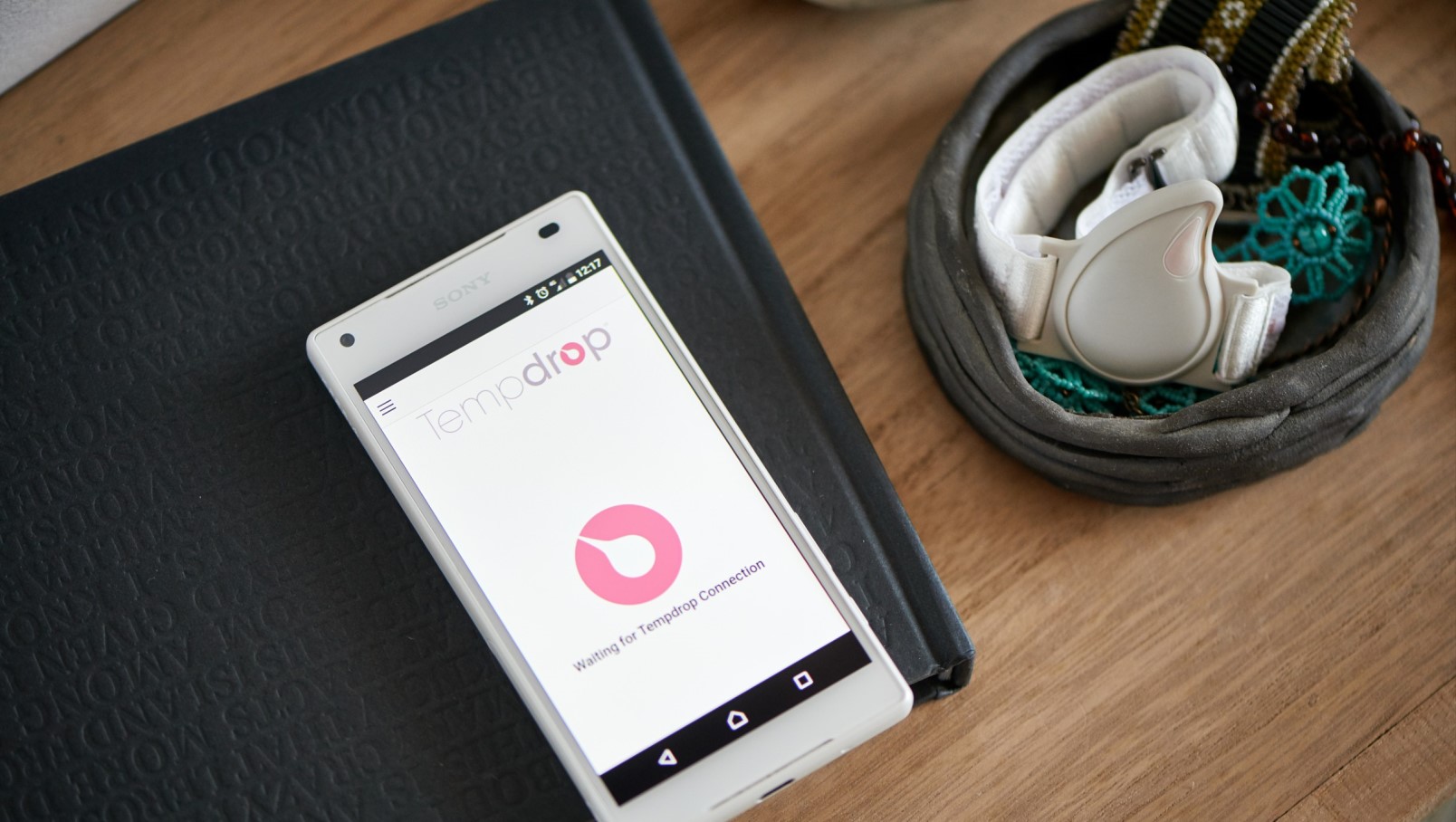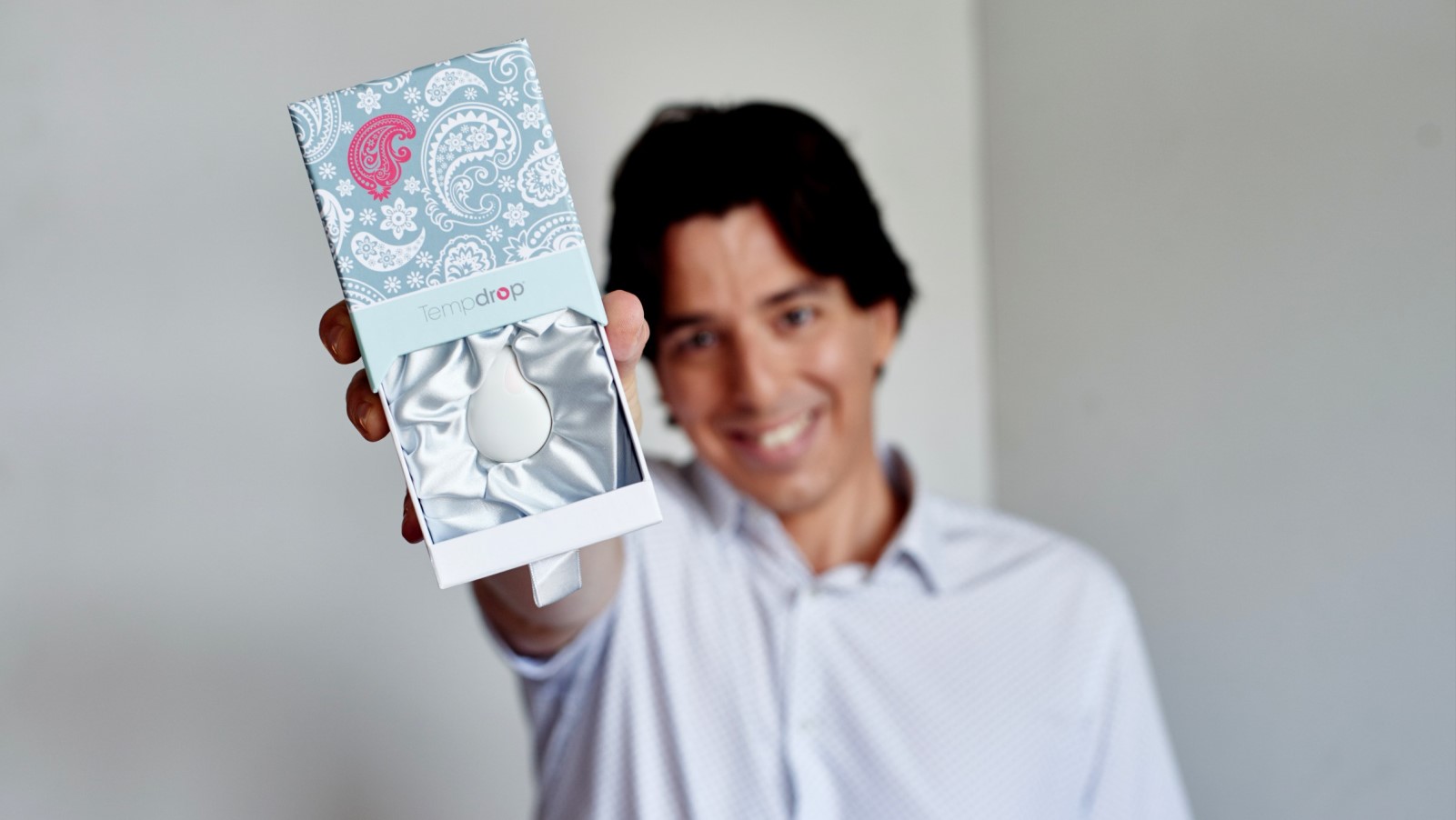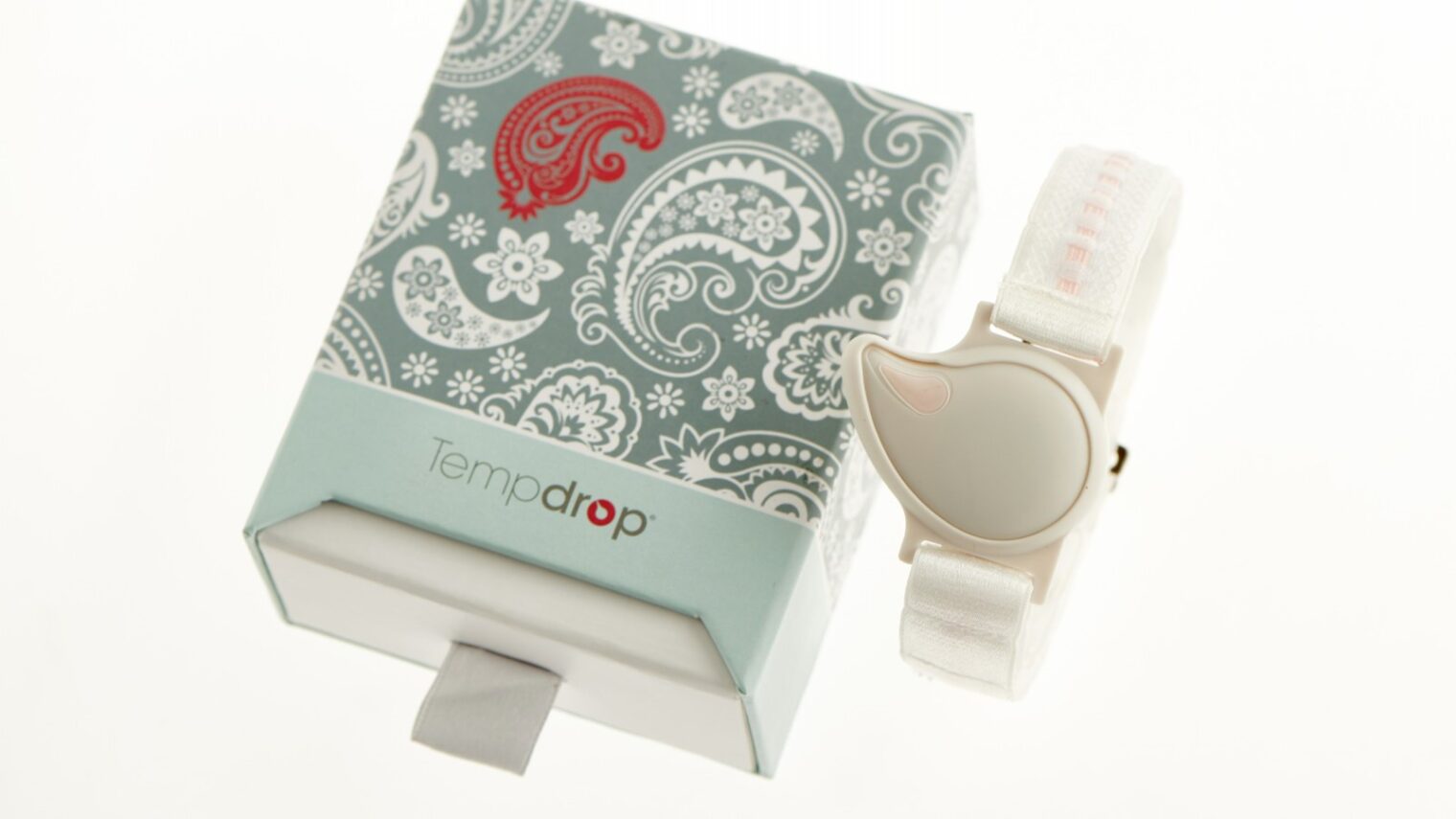Israeli dad Michael Vardi was surprised that he and his wife spent eight months trying to conceive a sibling for their six-year-old child.
Despite his degrees in mechanical and biomedical engineering, and previous experience founding a biomed startup, he realized that he simply didn’t know how to time sex optimally for achieving pregnancy.
“I did some research and found that, surprisingly, 90 percent of women — not to mention men — don’t know how to time intercourse. I also found out the amazing correlation between my wife’s sleeping temperature and ovulation,” Vardi tells ISRAEL21c.
Whether you’re TTC (trying to conceive) or trying not to, it’s critical to know exactly when ovulation occurs.
Various smartphone fertility apps can help you predict peak times for baby-making (or avoiding baby-making). However, you need the right tools to measure the parameters to plug into the app for proper calculations.
Vardi discovered that the most important factor, sleeping temperature, is inconvenient and difficult to measure accurately.
And that is how an idea for a startup was conceived along with a new Vardi baby.

In 2013, Vardi began the preliminaries leading to Tempdrop, a wearable device that tracks changes in a woman’s sleeping basal temperature to help predict ovulation.
Over the course of a night, the device collects thousands of data points on body temperature and motion while the woman is asleep. When removed in the morning, Tempdrop automatically syncs with any smartphone fertility app to feed it accurate data crunched by its algorithm. It’s also integrated into an Android fertility app called OvuView.
Recently, the first Tempdrop sensors began coming off the northern Israel assembly line with “Made in Israel” stickers affixed to the backs, and going out to sleep researchers worldwide who’ve been anxious to try it.
Preorders placed online over the past three years – mainly from the United States, followed by Canada, Germany, Russia, Israel — started shipping out on July 31. The device retails for $120.
International team of experts
Though it took more time than Vardi expected to tweak the final product he never gave up on his idea.
During the months he and his wife were TTC several years ago, there already were fertility monitors available and a growing number of fertility apps. No single device linked them all together.
“I wanted to develop a tool for all those fertility apps so you could use your smartphone as your monitor. I set a goal to develop the most accurate user-specific monitor to sync with any app out there,” says Vardi.
In early 2014, Tempdrop launched a crowdfunding campaign in order to validate the market and raise money for developing a prototype. The company was founded that June and initial development was completed eight months later. A manufacturing partner in Kfar Saba, H.A. Components, took on the production costs.

Vardi gathered a team of experts including Talithia Williams of Rice University, a PhD in statistics who gave a popular TED Talk about conception; Prof. Ari Shechter, a Columbia University expert in human chronobiology; and Dr. Joseph Hasson, an infertility specialist formerly with the IVF & Infertility Center at Tel Aviv Medical Center and now at McGill University Reproductive Center in Canada.
Based in Kfar Saba, Tempdrop passed all certification tests for CE certification (Europe) and FCC certification (USA). It does not need US Food & Drug Administration approval since it’s not a medical device.
“After a long five years and the help of a grant from the Innovation Authority, Tempdrop is live,” he told ISRAEL21c at the beginning of July, noting that he is proud of the fact that many Druze Israelis are employed at his assembly facility in Ma’alot in northern Israel.
And by the way, Vardi and his wife are now the proud parents of three.
For more information, click here














